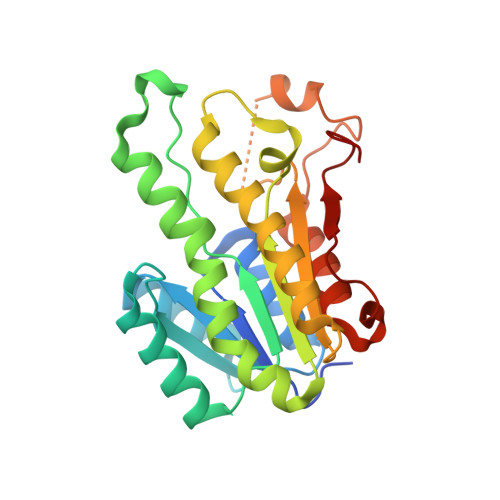Stereoselective synthesis of chiral delta-lactones via an engineered carbonyl reductase.
Wang, T., Zhang, X.Y., Zheng, Y.C., Bai, Y.P.(2021) Chem Commun (Camb) 57: 10584-10587
- PubMed: 34559867
- DOI: https://doi.org/10.1039/d1cc04542c
- Primary Citation of Related Structures:
7EMG - PubMed Abstract:
A carbonyl reductase variant, Sm CR M5 , from Serratia marcescens was obtained through structure-guided directed evolution. The variant showed improved specific activity (U mg -1 ) towards most of the 16 tested substrates and gave high stereoselectivities of up to 99% in the asymmetric synthesis of 13 γ-/δ-lactones. In particular, SmCR M5 showed a 13.8-fold higher specific activity towards the model substrate, i.e. , 5-oxodecanoic acid, and gave ( R )-δ-decalactone in 99% ee with a space-time yield (STY) of 301 g L -1 d -1 . The preparative synthesis of six δ-lactones in high yields and with high enantiopurities showed the feasibility of the biocatalytic synthesis of these high-value-added chemicals, providing a cost-effective and green alternative to noble-metal catalysis.
Organizational Affiliation:
State Key Laboratory of Bioreactor Engineering, Shanghai Collaborative Innovation Center for Biomanufacturing, East China University of Science and Technology, 130 Meilong Road, Shanghai 200237, China. ybai@ecust.edu.cn.
















